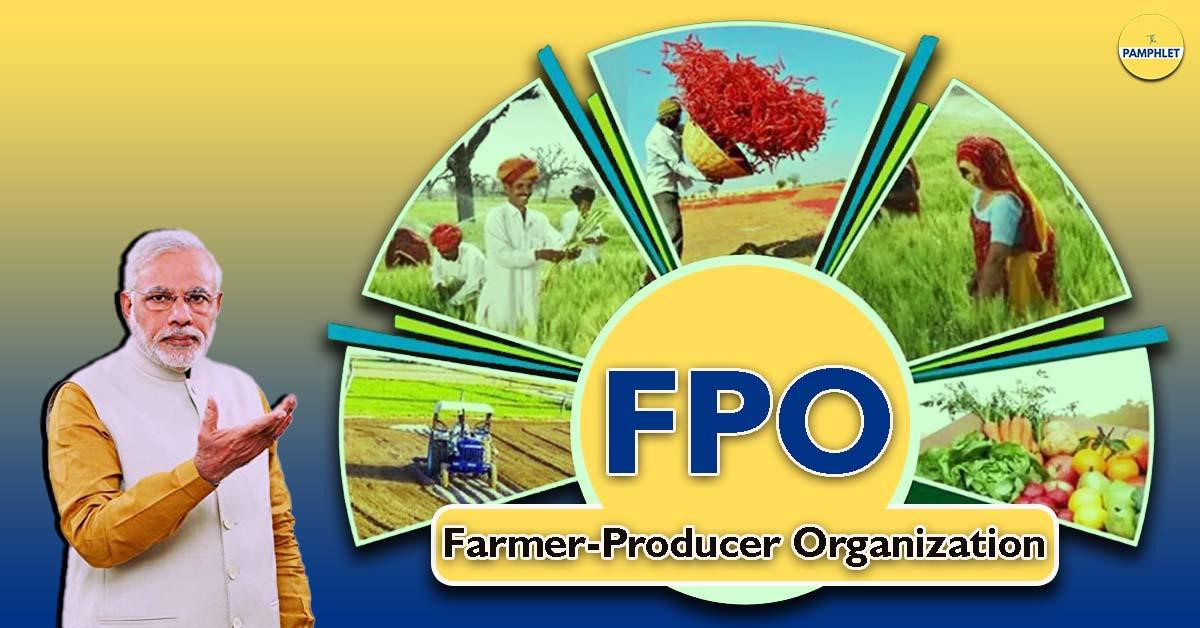
Farmer Producer Organization (FPO)

26.10.2023
Farmer Producer Organization (FPO) , Daily Current Affairs , RACE IAS : Best IAS Coaching in Kanpur
|
For Prelims: FPO, Important Points, Implementing Agencies for FPO For Mains GS Paper 2: Major Activities of FPO, Benefits of FPO Current challenges in FPO, efforts made by government for FPO |
Why in the news?
The role of Farmer Producer Organization (FPO) as an engine of agricultural innovation has made eastern Uttar Pradesh a hub of vegetable and fruit exports.
Important points:
- UP's FPO portal shows that out of these, 1,316 organizations are related to grains, which include,
- 378 businesses are involved in horticultural products, 338 in pulses, 231 in oilseeds, 48 in millet products, 101 in medicinal and aromatic crops and 170 in sugarcane.
What is FPO?
- FPO is a legal entity owned and managed by farmers, which includes farmers, dairy producers, fishermen, planters and others engaged in primary production in the agriculture sector.
- In other words, FPOs are voluntary groups led by farmers who actively participate in shaping their own policies and decisions to improve the socio-economic conditions of themselves and their communities.
- They aim to utilize economies of scale in production and marketing to increase productivity and income in farming, as well as be efficient in the use of resources, cost-effective and sustainable.
- FPO can be registered as a co-operative under the Companies Act or under the Societies Registration Act.
- If farmers want to form a new FPO together, they can suggest a name and get it registered under the Companies Act.
- It is mandatory for all members of Farmer Producer Organization to be farmers and have Indian citizenship.
- It is mandatory for every farmer producer organization to have at least 11 farmers.
- FPOs are basically a mixture of cooperative societies and private companies.
Implementing Agencies for FPO:
The following three implementing agencies will form and promote Farmer Producer Organizations
- Small Farmers Agri-Business Association (SFAC)
- National Cooperative Development Corporation (NCDC)
- National Bank for Agriculture and Rural Development (NABARD)
Major activities of FPO:
- Supply quality production inputs like seeds, fertilizers, pesticides and other such inputs at reasonable low wholesale rates.
- To provide need based machinery to members on custom hiring basis to reduce per unit production cost.
- Starting high income generating activities like seed production, beekeeping, mushroom cultivation etc.
- To facilitate market information about the product for judicious decisions in production and marketing.
- To provide logistics services like storage, transportation, loading/un-loading etc. on shared cost basis.
- To market the collected produce with better negotiating power while providing better and remunerative prices to the buyers.
Benefits of FPO:
- Social capital: They reduce social conflicts by increasing women's participation in agriculture.
- Better price discovery: These can increase the income of farmers by selling their produce collectively and negotiating better prices with buyers or government agencies.
- Bargaining power: FPO can help farmers compete with large corporate enterprises in bargaining as it allows members to negotiate as a group.
- Capacity building: They can provide training and education to farmers on new technologies, best practices and market opportunities.
- FPOs promote collective farming among Indian farmers with small land holdings to overcome productivity challenges.
- Transparency: It creates a more transparent agri-market, and strives to nurture them to their full potential.
Current Challenges in FPO:
- Trained Professionals: One of the main challenges for rural farmer producer organizations (FPOs) is the lack of trained professionals to manage them.
- Financial condition: The financial condition of FPOs is often weak due to limited resources of small and marginal farmers.
- Many FPOs also struggle to obtain loans because they do not meet the minimum shareholder member requirement.
- Problem with cropping pattern: If monoculture is the dominant practice, it may take several procurement cycles to include more people in the FPO.
- Skill shortage: It is difficult to attract and retain skilled professionals to handle other managerial responsibilities of administration.
- Unprofitable: FPOs may be unprofitable due to poor inventory management, lack of skills to develop viable business plans and manage the business.
- Defunct FPOs: The number of FPOs has increased rapidly, but many of them are struggling to function, and many have become defunct.
- Governance: Low governance capacity is due to low levels of literacy among farmers, limited awareness about running an FPO and lack of time.
- Policy paralysis: There are disparities with respect to credit availability, the price at which fertilizer can be purchased, and the availability of minimum support price (MSP).
Efforts made by the government for FPOs:
- Formation and promotion of new 10,000 FPOs
- honey fpo program
- Agricultural Infrastructure Fund
- Deendayal Antyodaya Yojana- National Rural Livelihood Mission (DAY-NRLM)
- venture capital assistance program
- One Nation One District Product
- Mission for Integrated Development of Horticulture (MIDH)
- FPO Shakti Portal to provide a single platform to all active FPOs in UP.
- The Government of Uttar Pradesh has constituted a dedicated FPO cell to regulate these organizations.
Its objective is to ensure convergence of schemes, resolve compliance issues and provide sustained support to FPOs so that they become agents of prosperity in the rural economy.